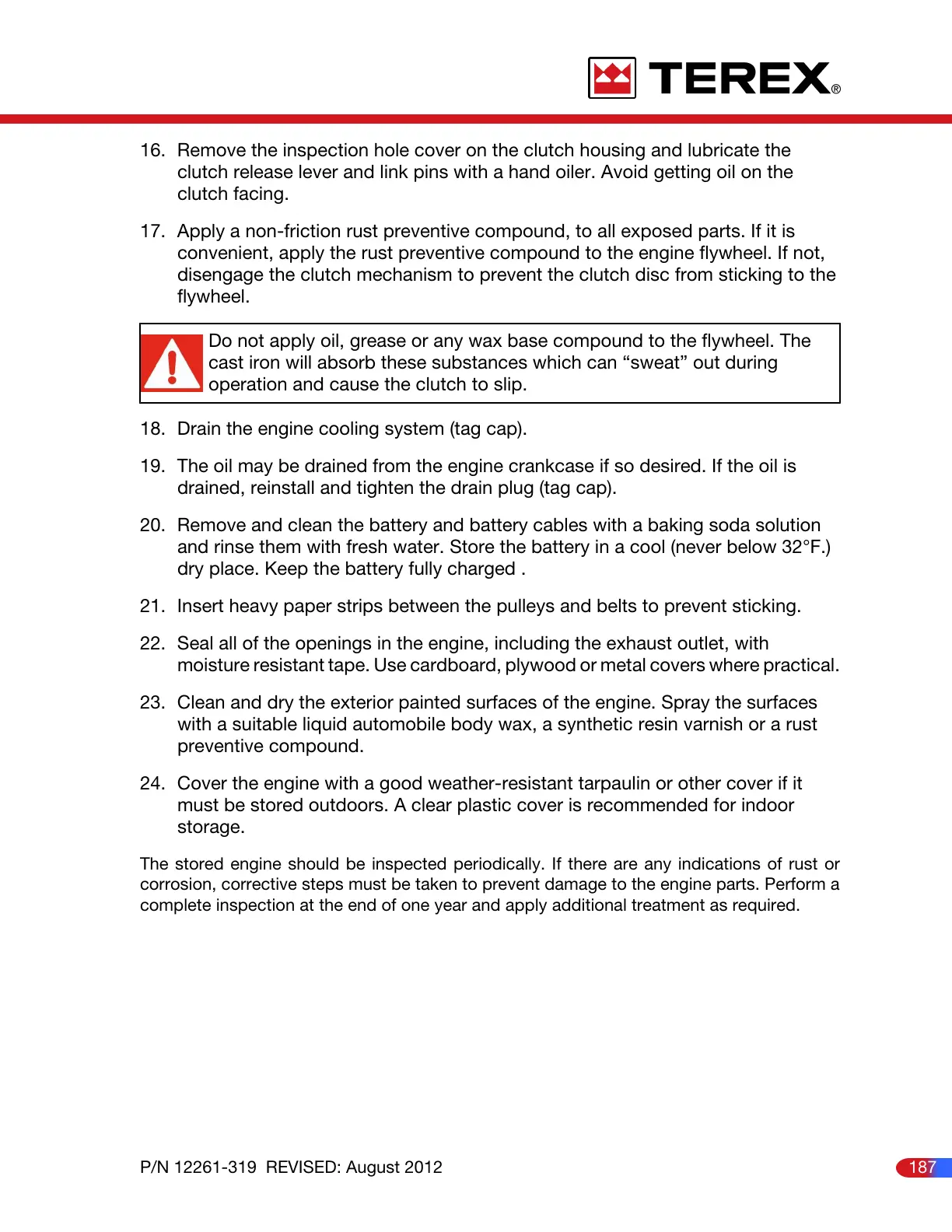16. Remove the inspection hole cover on the clutch housing and lubricate the
clutch release lever and link pins with a hand oiler. Avoid getting oil on the
clutch facing.
17. Apply a non-friction rust preventive compound, to all exposed parts. If it is
convenient, apply the rust preventive compound to the engine flywheel. If not,
disengage the clutch mechanism to prevent the clutch disc from sticking to the
flywheel.
Do not apply oil, grease or any wax base compound to the flywheel. The
cast iron will absorb these substances which can “sweat” out during
operation and cause the clutch to slip.
18. Drain the engine cooling system (tag cap).
19. The oil may be drained from the engine crankcase if so desired. If the oil is
drained, reinstall and tighten the drain plug (tag cap).
20. Remove and clean the battery and battery cables with a baking soda solution
and rinse them with fresh water. Store the battery in a cool (never below 32°F.)
dry place. Keep the battery fully charged .
21. Insert heavy paper strips between the pulleys and belts to prevent sticking.
22. Seal all of the openings in the engine, including the exhaust outlet, with
moisture resistant tape. Use cardboard, plywood or metal covers where practical.
23. Clean and dry the exterior painted surfaces of the engine. Spray the surfaces
with a suitable liquid automobile body wax, a synthetic resin varnish or a rust
preventive compound.
24. Cover the engine with a good weather-resistant tarpaulin or other cover if it
must be stored outdoors. A clear plastic cover is recommended for indoor
storage.
The stored engine should be inspected periodically. If there are any indications of rust or
corrosion, corrective steps must be taken to prevent damage to the engine parts. Perform a
complete inspection at the end of one year and apply additional treatment as required.
187P/N 12261-319 REVISED: August 2012
Courtesy of Crane.Market
